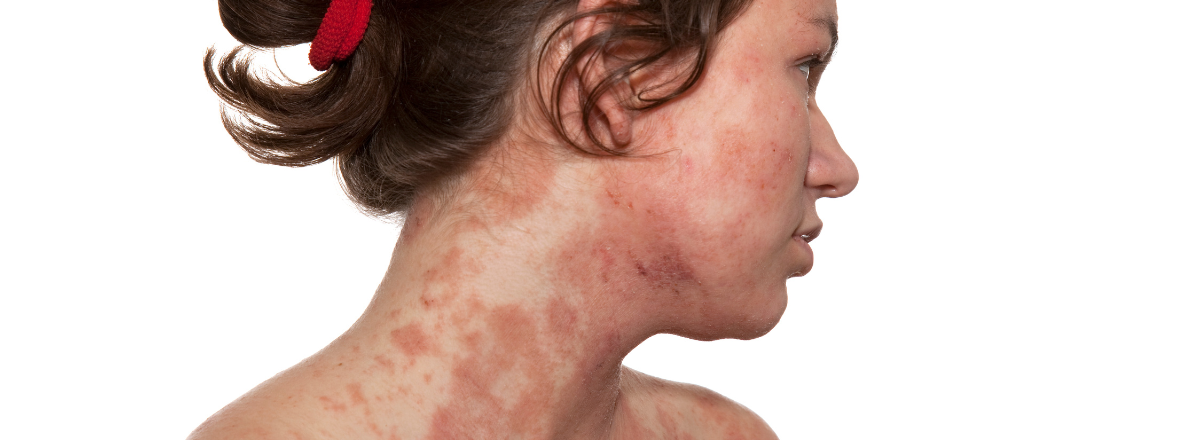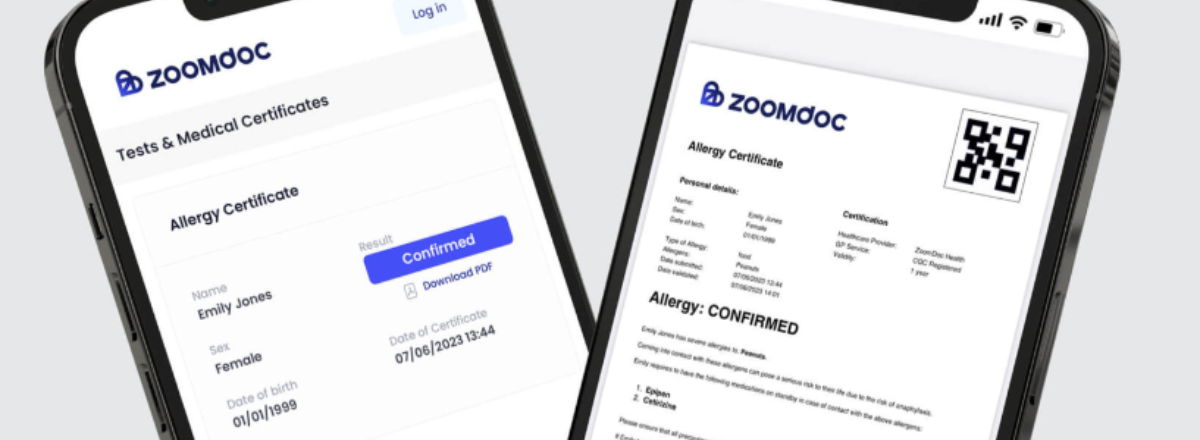Some of us feel so much healthier once the summer arrives – whether it’s due to all that vitamin D or just the longer, lighter evenings, there’s definitely something feel-good about the sunshine. But for others, summertime isn’t so much fun, triggering a whole host of seasonal and hot weather-related allergies … and we’re not just talking about hay fever.
From asthma to potential sun cream sensitivities, here’s why summer isn’t necessarily everyone’s favourite season when it comes to health matters. Plus, the tips and advice that can (hopefully) help you enjoy it, for once.
Asthma

Asthma is a common lung condition that causes occasional breathing difficulties. It affects people of all ages.
According to Asthma+Lung UK, the weather is a huge trigger for asthma sufferers. Although winter can affect it, so too can hot, summer weather, especially thunderstorms.
Although the causes are unclear, asthma experts put it down to two reasons:
- Breathing in hot air can cause the airways to narrow, leading to coughing and shortness of breath.
- When it’s hot in summer, there are often higher levels of pollutants and pollens in the air. There is some evidence to suggest a link between high levels of grass pollen, in particular, and increased hospital numbers of COPD hospital admissions.
‘Knowing your asthma triggers is key,’ says Dr Kenny. ‘Make sure you have an asthma action plan and keep a symptom diary, too. If you know weather is a trigger, especially changing weather, then have your reliever inhaler with you at all times and use it correctly and when required to reduce your risk of asthma symptoms or an asthma attack.’
Find more help about preventing asthma attacks here.
Sun cream sensitivity
Last year (2022) Nivea changed its Nivea Sun Kids 50+ Protect & Care Roll-On formula to include an ingredient called Prunus Amygdalus Dulcis Oil, also known as almond oil. It caused a furore with parents concerned about kids with nut allergies using this product and some nurseries and schools even banned the product.
Nivea responded to these concerns explaining that the allergenic part of almonds, actually a seed not a nut, is not present within the product.
In its most recent statement (June 2023) it says:
‘The specific Almond oil used in some of our Sun products has been refined and purified leaving it free of any allergenic proteins. This status has been confirmed by an external testing institute. Beiersdorf also uses the highest and most rigorous toxicological testing for all products and all ingredients are evaluated in line with EU legislation for the safety of cosmetics.’
Nivea adds:
‘We recommend anyone who has a concern about food and/or skin-related almond allergies seek the advice of their GP before using any product containing Almond Oil. If in doubt, our NIVEA SUN Babies & Kids Sensitive Protect range may be a more suitable alternative, as it does not contain Almond Oil. This range is easy to identify as it comes in white bottles.’
Dr Kenny says that parents should be reassured by Nivea’s statement.
‘Although it’s natural for parents to have been concerned over this added ingredient, almond oil is a commonly used and nourishing skincare ingredient. I would advise children with severe nut allergies, especially an almond allergy, to use an alternative as Nivea advises. However, it poses no risk for other children using it, such as at a nursery or school setting due to the lack of allergen contained within it,’ says Dr Kenny.
Proof of allergies
ZoomDoc has now added an Allergy Certificate to its Medical Letters service. This is ideal for anyone jetting off this summer worried about a nut allergy, or any other allergy, especially while travelling or abroad.
Simply order this certificate and you’ll get it the same day, without needing to go to your GP. Your own personal certificate will be signed and authorised by a GMC-registered UK doctor. As well as detailing the type of allergy and allergens that can cause a serious allergic reaction or anaphylaxis, it will also confirm any medications that you require to carry with you, in case of exposure.
Eczema

Atopic eczema is the most common form of eczema, that causes the skin to become itchy, dry and cracked.
Eczema can flare up according to the season you’re in and although often caused by cold weather, the summer months can be equally aggravating.
‘Sweating, chlorine and the drying effect of air conditioning can all make something like eczema worse,’ says Dr Kenny. ‘Try to pinpoint any triggers and avoid them if possible. Use fans instead of air conditioning, or at least rinse chlorine off your skin as soon as you can to stop it irritating already sensitive skin,’ he says.
Contact your GP if your eczema doesn’t respond to your usual moisturiser or steroid treatment.
Hay fever

Hay fever is usually worse, when the pollen count is at its highest between late March and September.
According to Asthma+Lung UK, 95% of people with hay fever are allergic to grass pollen, which peaks during the summer months (May-July). Anyone can become allergic to pollen so if you’re suffering with cold-like symptoms right now (runny nose, itchy or watery eyes, sneezing) try taking an antihistamine to see if it helps. If it calms things down it’s likely to be hay fever.
Although hay fever can be manageable with over-the-counter medications like tablets and nasal sprays, if it makes your summer miserable, talk to your GP, says Dr Kenny.
‘If it’s not responding you may need something stronger like a steroid to calm your symptoms, so do ask for advice if yours is particularly bad this summer,’ he says.
Nut allergy

Nut allergy, is one of the commonest food allergies, affecting about 1-2% (1 in 100 to 1 in 50) of children in Britain.
If you’re travelling on a plane this summer and have a nut allergy you may be particularly nervous about it, and understandably so.
Allergy UK says ‘before booking a holiday or making travel arrangements, time spent on the planning stage is important. This involves gathering information to make informed decisions based on the individual needs of the person with the food allergy.’
As well as alerting the airline to your allergy (remember to also tell them at check-in and onboard, too), make sure you have all the relevant medication (epipens) ready to take with, as well as confirmation of your allergy.
To save you some stress, ZoomDoc now provides a same-day Allergy Certificate for just £40 – no doctor’s appointment required.
‘This makes it easy to get confirmation of your allergy for an airline (or office, school or place of work) so as to ensure that precautions are taken to avoid potential exposure. Anaphylaxis can be a serious condition, so ensuring others are aware of allergens that you or your child have to avoid is imperative. QR coded, our medical certificates can be validated and verified at any time.’
Find out more about ZoomDoc’s Medical Letters and Certificates here.


